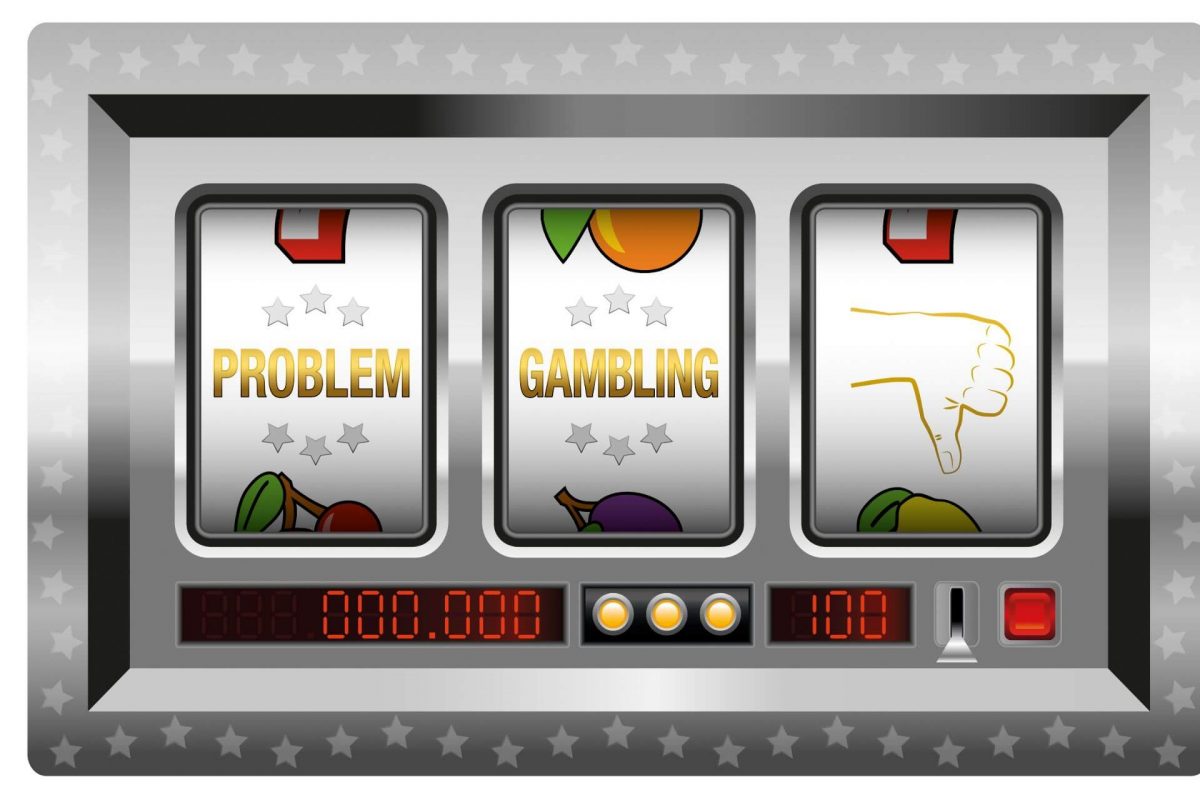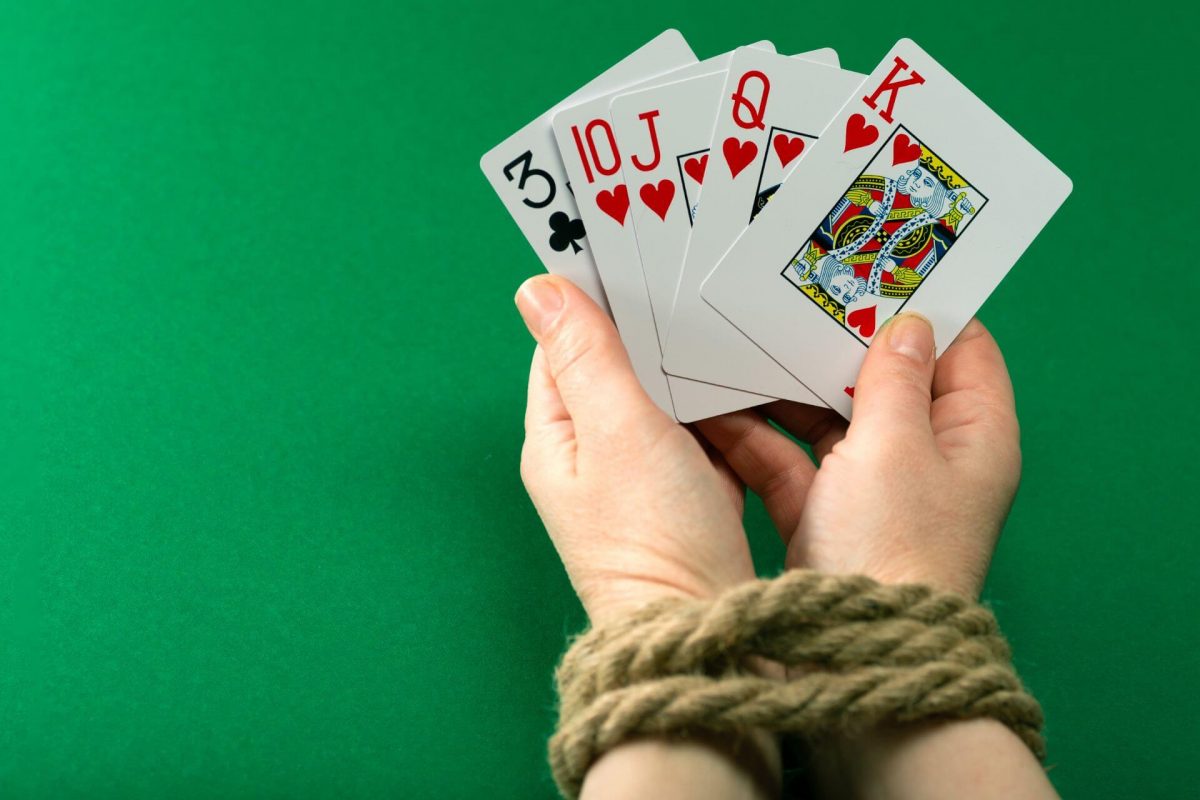Gambling disorder, a condition once referred to as compulsive or pathological gambling, is a behavioural addiction (sometimes called a process addiction).
What is a gambling disorder?
According to the Mayo Clinic, ”gambling disorder is the uncontrollable urge to keep gambling despite the toll it takes on your life.
Gambling means that you are willing to risk something you value in the hope of getting something of even greater value”.
Diagnostic and statistical manual
Gambling disorder is the only recognised behavioural addiction presently classified within the diagnostic and statistical manual (DSM – 5).
Gambling disorder is categorised under ”addiction and related disorders” within the DSM – 5.
The different types of gambling addiction

There are two types of gamblers; professional and social, and not all people who gamble have an addiction – like not everyone who drinks has an alcohol problem.
It is essential to distinguish between regular gamblers who occasionally gamble for fun and those who have a genuine problem.
Compulsive gambling
Research demonstrates several key characteristics that people with gambling disorders tend to share.
Indeed, understanding the signs of a gambling disorder can be the difference between a person getting the help and support they need to overcome their behavioural addiction or continuing on the path of self-destruction.
What are the five major signs of a gambling disorder?
Like other addictions, gambling disorder includes maladaptive gambling behaviour patterns that an individual constantly pursues despite adverse consequences.
The five significant signs of gambling disorder or pathological gambling include:
- An inability to control gambling behaviour and repeated unsuccessful attempts to stop
- Financial issues because of gambling may be because the person uses increased amounts of money to achieve pleasure or excitement, or they steal or borrow money from other people to fund their gambling addiction.
- Preoccupation with gambling, such as thinking about gambling or engaging in gambling behaviours
- Gamblers continuously chase losses, such as trying to win back lost money by gambling more cash.
- Negative consequences – involves lying to family and friends about a gambling problem and job disruption due to lack of concentration and the impulse to gamble.
Powertrip
Some studies show different thinking and behavioural patterns in those who develop a gambling addiction.
Problem gambling
For example, people with gambling disorder tend to attach profoundly positive attributes to things like power, wealth, security, status, and freedom.
Such beliefs can often be a double-edged sword for those with a gambling problem since gambling often puts people at risk of losing all the attributes they desire.
Inherently, gambling is all about trial -and -error; from the moment we decide to gamble, the odds of winning get stacked against us – essentially, we are far more likely to lose than win.
Addicted to gambling
For those with gambling addiction, when they do get lucky and win, they often gamble their winnings away quite quickly, which feeds the endless cycle of addiction.
Distorted thinking
Some literature posits that people with a gambling addiction often have distorted thinking, sometimes referred to as ‘cognitive distortions.’
If you think about a usual way to make money, gambling doesn’t usually signify a viable solution in most people’s minds.
Gambling is an unreliable, unpredictable way of obtaining money.
However, for people with a gambling addiction, their distortions often cloud their judgement, fueling the compulsive gambling addiction cycle.
The three categories of gambling pathology
Experts have classified the cognitive distortions associated with gambling disorders into three categories:
- Superstitions
- Incorrect understanding of probability
- Illusion of control
The result of compulsive gambling
Distorted thinking patterns are significantly ritualised in nature, which is indicative of all addictions.
Examples of distorted thinking in those with a gambling disorder include:
- Superstitions – adopting the belief that certain behaviours, numbers, lucky charms, or clothing items may result in winning or losing.
- Near-miss beliefs involve thinking about what could have happened or what almost happened to justify destructive behaviours, i.e. ”I almost won”. Often, near-misses can be just as exciting as winning to those with a gambling problem, which provides a benchmark for future gambling.
- Selective memory or recall – involves a person only recalling their wins and dismissing or brushing over their losses.
- Humanising gambling devices – this involves assigning human characteristics to an inanimate object; for instance, a person may believe that a machine is rewarding, punishing, or antagonising them somehow.
- Attribution – the belief that winning occurs as a result of a person’s actions or efforts and not randomly
What are the risk factors associated with gambling disorder?

Like many mental health conditions and addictions, the reasons why a person may develop a gambling disorder usually involve a mixture of environmental, genetic, social, and psychological factors.
However, the most prevalent factors linked to pathological gambling involve:
- Genetics: Genetic predispositions and family history play a significant role in gambling disorders. People with close relatives who suffer from pathological gambling are more likely to develop the condition than those without such a family history.
- Gender: Studies show that men are more likely to have a problem with gambling disorder (4.2%) than women (2.95).
- Age: Anyone can develop a gambling disorder no matter their age. However, the average age of developing a gambling addiction is around thirty-six.
- Mental health: The risk rates for compulsive gambling addiction, particularly those with mental health conditions such as anxiety disorders, substance use disorders, personality disorders, and mood disorders, is profoundly higher (up to 95%) than those who do not suffer from such conditions.
- Personality characteristics: Research shows that specific traits can also put someone at higher risk of developing a gambling addiction, such as having a highly competitive or impulsive nature.
Treatment
For those who have a gambling problem, there are treatment options available.
Recovery from a gambling disorder takes time and effort, but there are effective treatments to guide you along the process.
Treatment for a gambling disorder include:
- Self-help groups or group therapy – support groups allow people to air their emotions in a non-judgmental space and often get used as part of a relapse prevention program.
- Psychotherapy – therapies such as cognitive behavioural therapy or cognitive therapy are incredibly effective in helping people change any unhelpful thoughts and behaviours that lead to gambling addiction. Family therapy may also be helpful if gambling has caused conflict or damage between family members or loved ones’.
- Medication – Certain medications may also get offered to those with a gambling addiction.
Recovery
Like most addictions, gambling addiction can have devastating repercussions for the person and their loved ones’.
However, recovery from gambling addiction is possible.
In the first instance, people looking to seek help for gambling addiction may benefit from talking to their doctor or licensed mental health professional.
Additionally, those experiencing financial issues because of gambling may find that speaking to a financial counsellor is helpful and will allow them to understand any potential long-term effects of gambling.
Understanding triggers

Equally, understanding what your addiction triggers are can also be profoundly valuable.
For example, your triggers may get influenced by environmental factors such as bars, clubs, casinos, or specific people that enable or encourage your gambling.
Other triggers might be negative emotions such as depression, anxiety, loneliness, or boredom.
Moreover, those with substance use disorders such as drugs or alcohol may find that such substances result in impaired judgement, making it harder to resist risky behaviours such as gambling.
If you think that you or a loved one might have a problem with a gambling addiction, don’t hesitate to contact a team member at White River Manor who can help.

